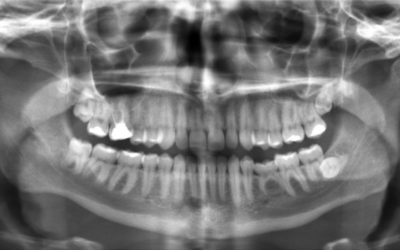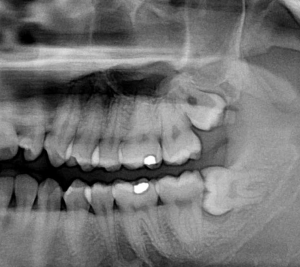What are the Dangers of Dry Socket?
To learn more, please schedule a consultation by calling us at (310) 826-8242.
What are the Symptoms of Dry Socket?
When a blood clot fails to form and adhere to the open wound left after removing a tooth, the exposed nerves and bone will cause a throbbing, intense pain that may be difficult to alleviate with pain relievers. The first three days following extraction will typically be the most painful as the tissue slowly heals. Some patients experience pain that radiates from the jaw to the ear, foul smelling breath, an unpleasant taste, and even swollen lymph nodes in the neck or jaw.
What Happens if Dry Socket Does Not Heal?
In most cases, if a patient develops dry socket, it is in the patient’s best interest to return to the dentist to have the socket cleaned and treated with a medicated dressing. However, without medical attention, the dry socket can become infected when food and debris collect in the opening. Infection can eventually cause weaken the surrounding gum and bone tissue, which can make it even more difficult and painful to heal even with professional help.
Get NoDrySocket Treatment
While dry socket is a rare condition, the periodontal specialists at the CENTER for Advanced Periodontal & Implant Therapy are careful to help patients avoid dry socket altogether with the latest periodontal technology. Our NoDrySocket prevention uses advanced platelet-rich fibrin has proven to be an effective method for preventing dry socket and improving recovery times following periodontal surgery or tooth extractions. Using a patient’s own blood, platelets and white blood cells are separated from the red and collected on a fibrin that can be inserted into the extraction site. The platelet-rich fibrin not only acts as a blood clot, but also supports the body’s natural healing process.
Schedule a Consultation with a Certified Periodontist Today
If you have an impacted or troublesome tooth, it may be necessary to have it removed to protect against infection or gum disease. Do not put off getting expert periodontal care. Contact the CENTER for Advanced Periodontal and Implant Therapy to receive the best treatment available in Los Angeles. Dr. Aalam and Dr. Krivitsky are expert periodontists and will create an effective treatment plan based on your specific needs. To schedule an appointment, please call us at (310) 826-8242.
You May Also Like...
Wisdom Teeth Bothering You? Here’s When You Should Get them Out
Let’s face it. There’s comes a time when your wisdom teeth just might need to come out. After all, through evolution,...
5 Serious Complications from Impacted Wisdom Teeth
The very last molars at the back of the mouth are called “wisdom teeth” because they tend to emerge much later than...
Make Your Wisdom Tooth Removal Easy with No Dry Socket
The thought of having a tooth removed can be unsettling to say the least, but a wisdom tooth extraction is...



